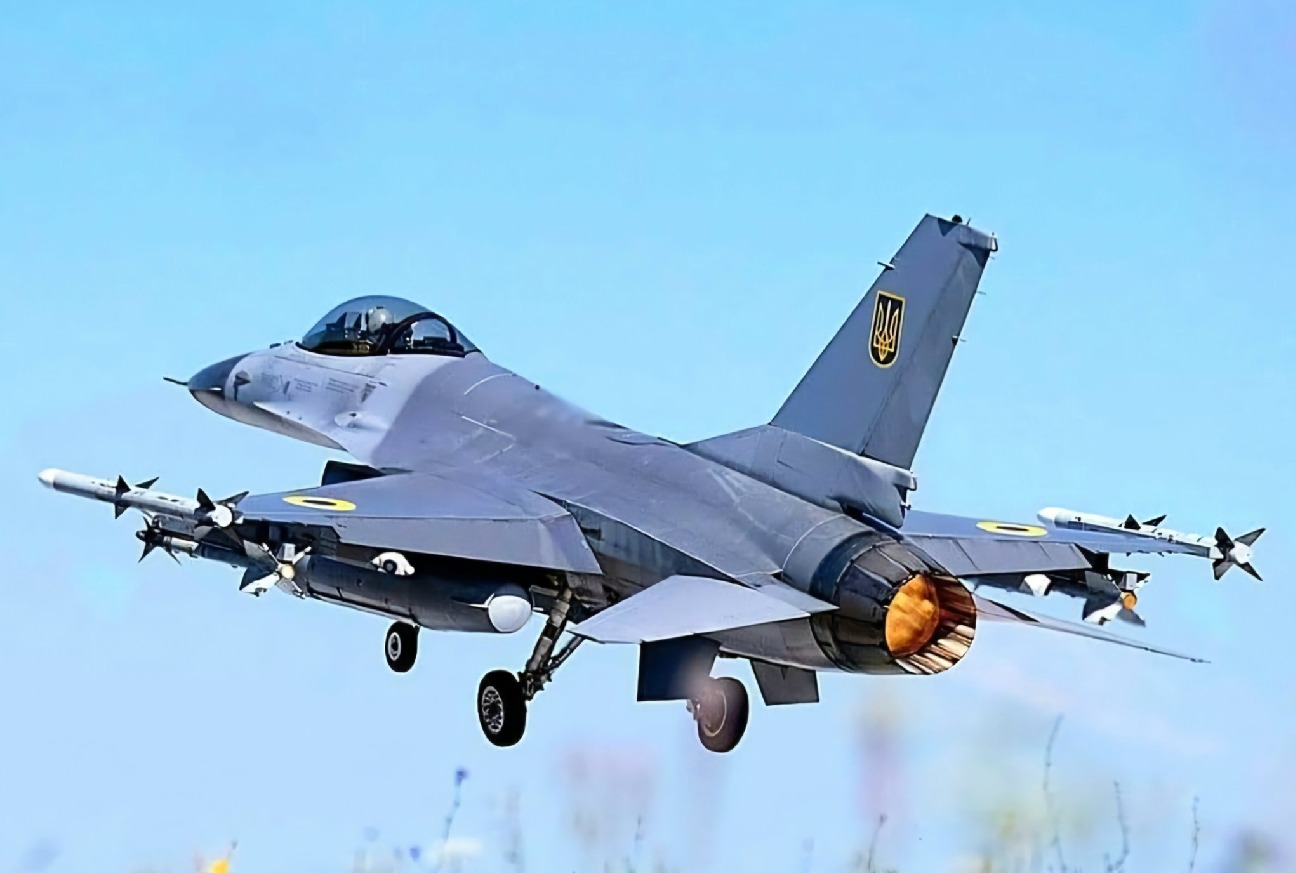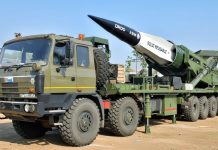The United States is contemplating supplying Ukraine with the AGM-158 Joint Air-to-Surface Standoff Missile (JASSM), a decision that could greatly improve the long-range strike capabilities of the F-16 fighter jets recently acquired by the country.
This development was highlighted in a recent Politico report, which pointed to the ongoing discussions within the Biden administration and the Pentagon about the feasibility of such a transfer.
The report indicates that US President Joe Biden has shown a willingness to consider providing Ukraine with JASSM missiles, but a final decision has not been reached.
The Pentagon is tackling multiple complex challenges related to the transfer, including the secure management of sensitive technologies.
F-16s “Sitting Ducks” For Russian MiG-31 Fighters? Putin Warns Of Consequences Over Fighting Falcons
If provided, the JASSM, developed by Lockheed Martin, would be a powerful enhancement to Ukraine’s military capabilities. Weighing approximately 2,400 pounds and carrying a 1,000-pound warhead, the missile is designed for long-range precision strikes.
Only a select group of close allies have deployed it, adding to its strategic significance. Only the US Air Force and Poland’s more advanced F-16 models are known to operate these missiles.

Pentagon spokesperson Jeff Jurgensen confirmed that a range of options was being explored to meet Ukraine’s security needs but refrained from disclosing whether the transfer of JASSM missiles had been finalized.
The inclusion of JASSMs in Ukraine’s arsenal would align with a broader trend of supplying increasingly sophisticated weaponry to Kyiv. Initially, items such as F-16s, Abrams tanks, and Patriot air defense systems were considered too advanced or sensitive for transfer to Ukraine.
Currently, Ukraine utilizes air- and ground-launched missiles from the U.S., UK, and France, with a range of nearly 200 miles. Nevertheless, Ukraine has consistently requested the JASSM, which delivers enhanced strike capabilities surpassing those of existing systems.
The Pentagon is also evaluating how to integrate these missiles with the F-16s being supplied to Ukraine. The F-16s to Ukraine are of the F-16 AM/BM standard, and they have undergone the Mid-Life Update (MLU) program.
While the current configuration of these jets does not allow for the deployment of JASSM missiles, suitable software and hardware modifications are expected to allow them to be adapted to carry and deploy these missiles.
While the specifics of the missile transfer and the associated technical considerations are still being worked out, the Biden administration remains committed to exploring ways to support Ukraine’s defense capabilities.
The Potential Impact On Ukraine’s Military Strategy
As Ukraine continues to fortify its military capabilities, the inclusion of the AGM-158 Joint Air-to-Surface Standoff Missiles (JASSM) in its arsenal marks a notable change in its strategic capabilities.
Stunning Rise! Turkey Now Has 5 Defense Firms In World’s Top 100; Drones Change Ankara’s Destiny!
Despite being a crucial asset for various air forces for around 20 years, the provision of the JASSM to Ukraine was previously considered unlikely due to its advanced technology and the complexities associated with its deployment.
The JASSM, in its standard AGM-158A variant, has an impressive range of about 330 miles and weighs 2,250 pounds. A more advanced version, the AGM-158B or JASSM-ER, extends this range to at least 575 miles.
The development of an even longer-range JASSM variant is underway, but the US military has yet to field it.
This advanced missile is equipped with a compact turbojet engine and relies on a combination of inertial navigation and GPS guidance to guarantee precise targeting. Its advanced capabilities include an imaging infrared system with automatic target recognition, which enables pinpoint accuracy during the final approach.

Engineered to perform effectively in GPS-degraded environments—an essential feature given the extensive GPS jamming employed by Russian forces in the current conflict—the JASSM is equipped with a dual-mode warhead. This warhead integrates both blast-fragmentation and penetration capabilities and weighs about 1,000 pounds.
Aerospace and nuclear engineer Robert Zubrin has highlighted the JASSM’s strategic potential, suggesting that just a few of these missiles could significantly impact Russian infrastructure.
For instance, he believes they could be used to target the Kerch Strait Bridge, a critical link isolating Crimea from mainland Russia. Further, Zubrin posits that the JASSM could also be employed to neutralize Russian naval assets operating in the vicinity of Crimea.
The supply of this missile could potentially prompt a shift in policy regarding the Taurus missile, which Germany has so far refused to provide to Ukraine.
The potential transfer of JASSMs to Ukraine raises several critical questions, particularly regarding their usage. A major concern is whether these missiles would be permitted to hit targets inside Russia due to their long range.
Although the JASSM’s range is more than sufficient for missions within Ukraine, its extended reach might be viewed as excessive for the country’s immediate needs, potentially necessitating adjustments.
The transfer of such sophisticated weaponry involves considerable technological risks. Officials may also be considering whether these risks are justified, especially given the potential for the JASSM—or its remnants—to fall into Russian hands.
Moreover, the missile’s long range presents additional strategic and logistical challenges. Integrating JASSMs into Ukraine’s newly acquired F-16s involves a complex process that includes technical adaptation and extensive training.
A new report indicates that efforts to integrate the JASSM with Ukrainian F-16s were already on. However, equipping these aircraft with JASSMs would require some time and resources.
Ukrainian pilots and maintenance personnel would need thorough training to operate the missiles effectively, and the backend infrastructure for mission planning would need to be established. Proper mission planning would be crucial to ensure that the JASSMs can navigate contested airspace and achieve their objectives.
Currently, Ukrainian F-16s are primarily configured for air-to-air combat. The initial focus will likely be mastering air defense roles before transitioning to offensive operations with JASSMs.
The addition of these missiles would enhance Ukraine’s ability to strike strategic targets, such as Russian air defense systems, command centers, and naval vessels, from a greater distance.
- Contact the author at ashishmichel(at)gmail.com
- Follow EurAsian Times on Google News




